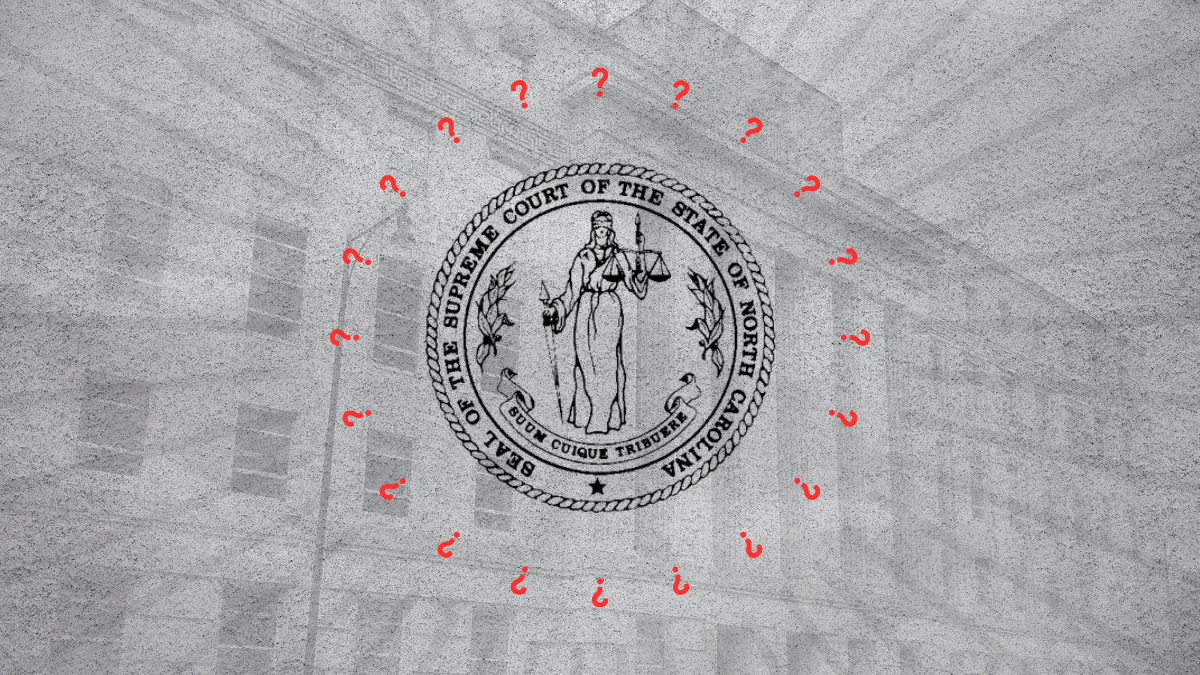Election Day was Nov. 5, 2024, and more than two and a half months later, no one has been declared the winner of the race for the final seat on the North Carolina Supreme Court bench.
Democratic incumbent Justice Allison Riggs leads by 734 votes but her opponent, Republican Jefferson Griffin, has refused to concede and filed multiple protests and lawsuits as he attempts to throw out 60,000 legal votes to steal the win from Riggs.
How we got to this point is a bit complex, but understanding it is important because this is a statewide race that impacts every North Carolinian whether they realize it or not.
How It All Started:
After seeing his lead dwindle and eventually disappear once early, absentee and provisional ballots were tallied, Griffin made his first call for a recount when the statewide canvass showed him trailing Riggs by only a handful of votes.
The North Carolina State Board of Elections (NCSBE) granted his request for a statewide machine recount, which confirmed Riggs’ victory. Unsatisfied with the latest result, Griffin then requested another recount. Elections officials conducted a partial hand recount that ended up giving Riggs 14 additional votes for a 734 vote lead. The NCSBE said there would be no further recounts following the second recount.
What Happened Next:
In addition to calling for multiple recounts, Griffin’s campaign also simultaneously filed protests across the state, claiming tens of thousands of ballots should be disqualified, most of them because the voters’ registration data does not include their driver’s license number or the last four digits of their Social Security number.
Many voters who discovered they were targets of the Griffin campaign’s protests were understandably upset and bothered by Griffin’s attempt to disenfranchise them. Some participated in press conferences and have spoken to various media outlets about how upset they are.
“Jefferson Griffin and the GOP do not actually want to make this election safe and secure. They want to throw out enough ballots as it will take to declare a victory. It’s desperate, and it’s not where state officials should be directing their energy,” said Gabby Chiarenza, a Wake County voter whose ballot has been challenged.
“It’s a pathetic act of desperation. It’s a political temper tantrum that is expensive and it is exhausting. It’s wasting taxpayer dollars and it’s wasting our time,” said Dr. Kimberly Hardy, another target of the Griffin campaign.
Just before casting the deciding vote to reject Griffin’s baseless challenge, NCSBE Chairman Alan Hirsch called the GOP effort to throw 60,000 votes out an affront to democracy itself.
“The idea that someone could have been registered to vote, came to vote — and then had their vote discarded — is anathema to the democratic system and simply cannot be tolerated,” he said.
The state board’s rejection prompted Griffin to sue and ask the state Supreme Court, which has a 5 to 2 Republican majority, to intervene. The defendants quickly moved the case to federal court where it was put in front of U.S. District Judge Richard E. Myers II, an appointee of Donald Trump, for consideration. Myers previously rejected the National and North Carolina Republican Party’s joint attempt to remove 225,000 people from the voter rolls using the same argument Griffin is now using. Griffin requested that Myers issue an injunction, otherwise the NCSBE would have been able to certify Riggs as the winner.
Although Myers had previously ruled against this specific argument, he changed his mind and ordered Griffin’s case back to state court, NC Newsline reported.
The NCSBE and Riggs filed a notice of appeal to the Fourth Circuit Court of Appeals as soon as the order was released on the evening of Jan. 6.
In a 4-2 ruling the next day, four Republicans on the state Supreme Court voted to block state elections officials from certifying Riggs’ win.
The lone Republican dissenter, Justice Richard Dietz, argued that intervention by the judiciary close to an election “becomes inappropriate because it can damage the integrity of the election process,” calling Griffin’s efforts “post-election litigation that seeks to remove the legal right to vote from people who lawfully voted.”
Dietz also warned that the court order “invites incredible mischief” because it will “lead to doubts about the finality of vote counts following an election, encourage novel legal challenges that greatly delay certification of the results, and fuel an already troubling decline in public faith in our elections.”
Democratic Justice Anita Earls was the only other justice to dissent. Riggs has recused herself from the case.
Where The Case Is Now:
After the state Supreme Court’s ruling, both campaigns filed federal appeals over the case. Riggs urged the U.S. Court of Appeals for the Fourth Circuit to take the case from the state Supreme Court, and to rule in her favor, while Griffin asked the court to drop the case and let the state Supreme Court decide.
Two days after filing their appeals, the 4th Circuit agreed to hear the case and set oral arguments for Jan. 27.
According to WRAL, setting arguments for Jan. 27 means there could be a ruling before mid-February when the North Carolina Supreme Court has its first oral arguments of the new term.
Though the 4th Circuit agreed to hear the case, the appellate court’s ruling didn’t instruct the North Carolina Supreme Court to stop working on the case, so it’s possible the case could be heard in both state and federal court.
The state high court’s majority opinion included a schedule for both sides to file all their arguments with the Supreme Court before the end of January so it could potentially be heard in February.
What’s Next:
If the state and federal courts reach different conclusions on whether to reject the ballots, it could lead to further legal battles to determine which court is right.
We will likely know the next steps in the case within the next few weeks.





